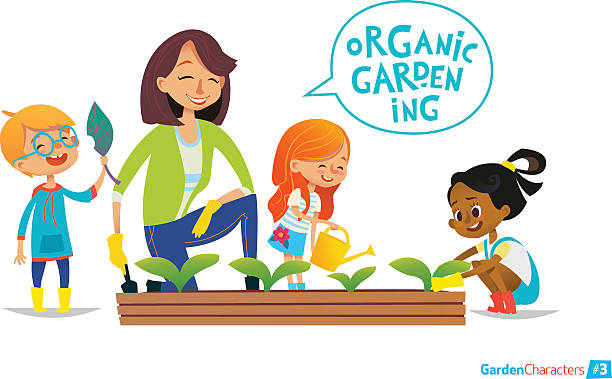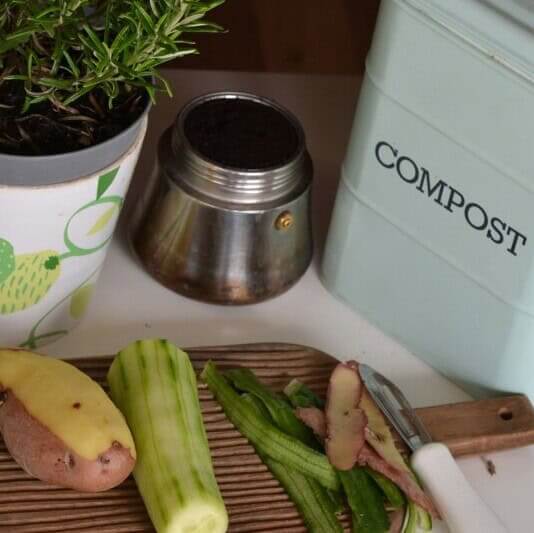Composting is a natural biological process that transforms organic matter into nutrient-rich soil conditioner, it plays a pivotal role in sustainable waste management and environmental conservation. In recent years, as the global community grapples with escalating environmental concerns, composting has emerged as a beacon of hope and an essential component of eco-friendly practices.
This article delves into the multifaceted importance of composting, and exploring its environmental, economic and social benefits.
Environmental Benefits of Composting
- Reduced Landfill Waste
One of the primary environmental benefits of composting lies in its ability to divert organic waste away from landfills. Organic waste, when deposited in landfills, undergoes anaerobic decomposition, releasing methane-a potent greenhouse gas. Composting, on the other hand, promotes aerobic decomposition, significantly reducing methane emissions and minimizing the burden on landfills. - Soil Enrichment and Carbon Sequestration
Compost acts as a natural soil conditioner, enhancing soil structure, water retention, and nutrient content. The introduction of compost to soil aids in carbon sequestration, mitigating the effects of climate change by capturing and storing atmospheric carbon dioxide. Healthy soil, enriched through composting, contributes to increased agricultural productivity and resilience. - Reduced Chemical Dependency
Compost enriches the soil with essential nutrients, reducing the need for synthetic fertilizers. Traditional agricultural practices often involve the use of chemical fertilizers that can lead to soil degradation and water pollution. Composting provides a sustainable alternative, fostering soil health and supporting organic farming practices.
Economic Benefits of Composting
- Cost Savings in Waste Management
Municipalities and businesses incur significant expenses in managing waste disposal. Composting offers a cost-effective solution by reducing the volume of waste that needs to be transported and treated in landfills. The financial savings realized through composting can be channeled into other community or business development initiatives. - Job Creation and Economic Opportunities
The composting industry generates employment opportunities at various levels, from collection and processing to distribution and application. As composting gains traction, it stimulates economic growth by fostering the development of related industries such as organic farming, landscaping, and compost product manufacturing. - Decreased Reliance on Synthetic Inputs
By reducing dependence on synthetic fertilizers, composting contributes to long-term cost savings for agricultural communities. The nutrient-rich compost serves as a sustainable and affordable alternative, promoting soil fertility and crop yield without the financial burden associated with chemical inputs.
Social Benefits of Composting
- Community Engagement and Education
Composting fosters community engagement as individuals and organizations work together to implement sustainable waste management practices. Educational programs on composting promote environmental awareness and empower communities to make informed choices regarding waste disposal and resource conservation. - Improved Public Health
Proper waste management, including composting, helps reduce the risk of water contamination and the spread of diseases associated with unsanitary conditions. Composting organic waste minimizes the need for incineration or other disposal methods that may release harmful pollutants into the air. - Enhanced Quality of Life
Access to nutrient-rich soil created through composting contributes to healthier and more vibrant green spaces. Parks, gardens, and urban landscapes benefit from improved soil quality, creating aesthetically pleasing environments that enhance the overall quality of life for residents.
Composting stands as a cornerstone in the pursuit of sustainable waste management and environmental conservation. Its multifaceted benefits, spanning environmental, economic, and social domains, underscore its indispensability in addressing the challenges posed by escalating waste generation and climate change. As individuals, communities, and nations embrace composting, they contribute not only to the well-being of the planet but also to the creation of a more resilient, economically robust, and socially cohesive world.
As we navigate the complexities of the 21st century, composting emerges not just as a process but as a symbol of our commitment to harmonizing human activities with the delicate balance of nature.
Brought to you by Eco TIGA – Your Friendly Guide to Eco-Friendly Living



